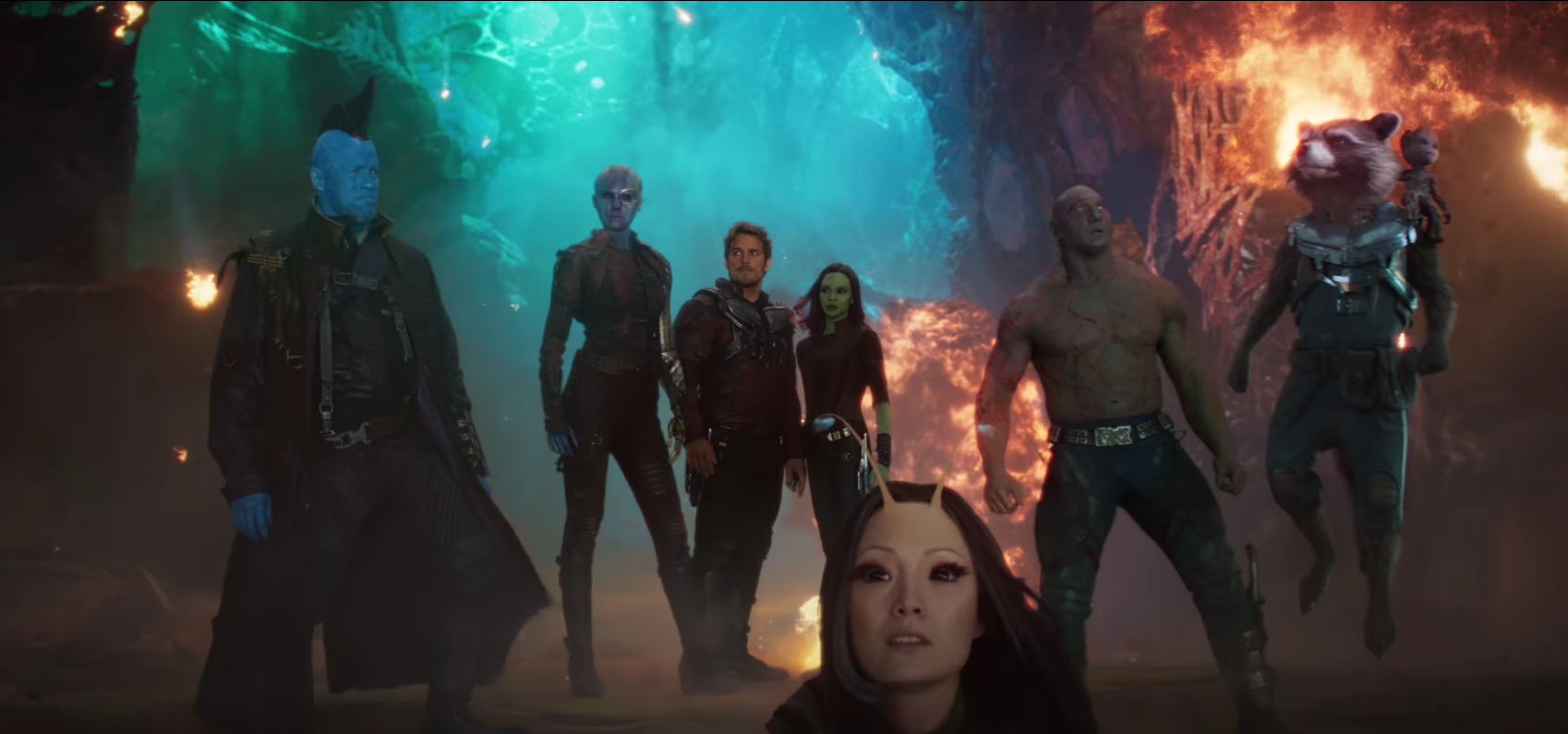One of the many joys of being an audience member in a movie theater is the ability to have an experience outside the film. Audience reactions are gained through a variety of ways — whether shock, sadness or joy — but perhaps one of the most surefire tactics to achieving some sort of reaction lies within an essential aspect of almost every viewer’s experience: music.
With this past weekend’s premier and box office success of Guardians of the Galaxy Vol. 2, audiences not only prove that Marvel is still on a winning streak in the superhero market, but that originality rewards filmmakers with fans’ adoration. The sequel also received much praise for its soundtrack and original score, although the soundtrack has been a conversation starter among various media outlets and fans, particularly because of its retro selections.
“In between the thuddingly obvious music cues of Suicide Squad, and the Sturm und Drang scores of most other comic-book flicks,” wrote the editors of Vulture, “the Guardians movies have carved out a very specific musical niche, employing a number of fondly (but not over-) remembered radio classics from the 1970s.”
Vulture’s use of the word “niche” is exactly what Guardians of the Galaxy Vol. 2 managed to fit into. Director James Gunn’s use of Fleetwood Mac’s “The Chain” during a scene when Peter, Gamora and Drax fly away on Ego’s spaceship is not only appropriate, but the perfect song choice — something that oozes cool.
However, this is no new occurrence, as a multitude of cult classics have employed finely arranged soundtracks that emit stylish vibes tuned to the tone of a certain moment.
Quentin Tarantino is a prime example of a filmmaker who combines original scores with soundtracks of his choosing. It is quite difficult to forget the bone-chilling yet mesmerizing tune that Elle Driver whistles as she makes her way to an incapacitated Beatrix’s hospital bed to assassinate her in Kill Bill Vol. 1 or when Vince and Mia do the twist to Chuck Berry’s “You Never Can Tell” in Pulp Fiction.
Filmmakers have also started to integrate orchestrated scores with wildly juxtaposed soundtracks, such as director Barry Jenkins in his Academy Award-winning Moonlight, where symphonic violin strings can be heard in one scene and then a chopped-and-screwed version of Jidenna’s “Classic Man” can be heard in the next. While “Classic Man” is one of the more bizarre song choices heard in the film, it still manages to fit nicely during the scene it’s used.
Nevertheless, classic movie series such as Star Wars, Jurassic Park and The Lord of the Rings never employ soundtracks, opting out for some of the most iconic movie themes ever heard in cinema. There are quite a few exceptions to the soundtrack, but that goes to show how much a part of the experience music can be. There is no doubt that without composer John Williams, pivotal moments within Star Wars — such as Luke Skywalker’s emotional gaze at the binary sunset of the desert world Tatooine — would not have been as impactful or fully realized.
Music, in large part, dictates the emotions audience members will feel during what may be the most memorable moments of a film. It adds to the life of the story, and it can ultimately make or break an audience’s experience.



